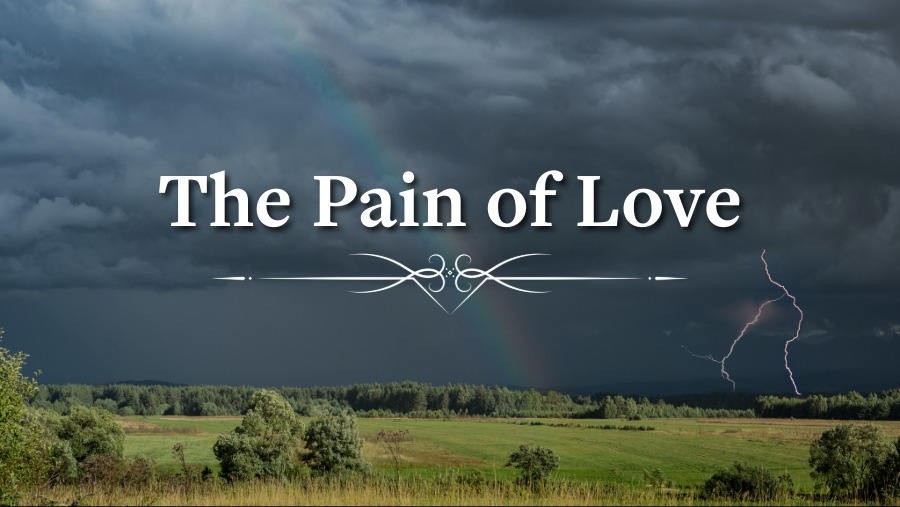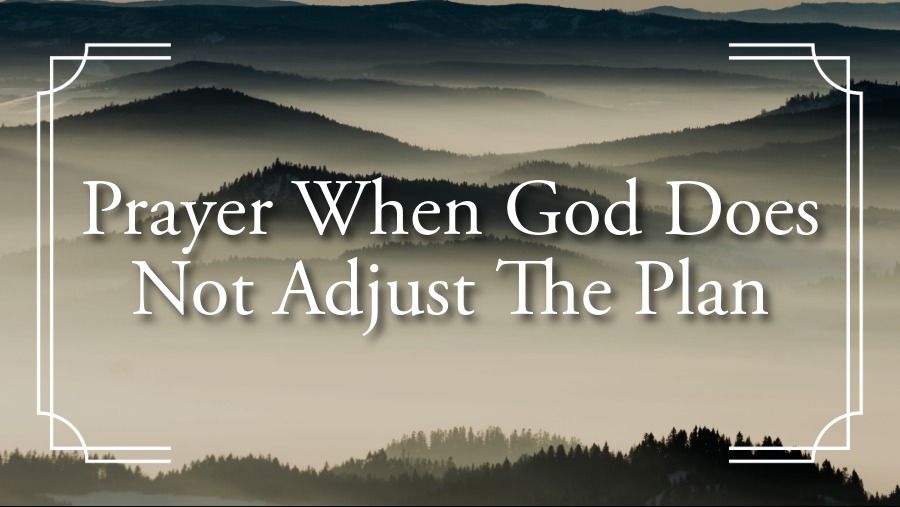
Ask The Pastor (8.27.2025)
The session opens with the pastor explaining the purpose and process of “Ask the Pastor.” He emphasizes that the questions are real—submitted via messages, email, or in person—and that he treats them seriously to ensure clarity about the Bible, faith, and church practices. He frames the event as pastoral care through teaching: answering what Scripture says, why the church does what it does, and how believers can live it out.
Anxiety, Prayer, and Practical Stewardship
Responding to a question about Philippians 4:6 (“be careful for nothing… in everything by prayer and supplication”) and whether one can “pray away” anxiety, the pastor distinguishes two dimensions: a chemical component and a mental/emotional component. The chemical aspect, he says, often must be managed; it may not change and can even be something God allows so that His strength is made evident in our weakness. The mental and emotional layers, however, should be taken to God in persistent prayer, where dependence and direction are formed.
He warns against self-condemnation—the spiral of being anxious about having anxiety—which compounds the burden and traps people in a cycle of inadequacy (“I shouldn’t be this way”). God’s word invites stillness and trust (“Stand still. See the salvation of the Lord.”), so believers should avoid the self-accusatory loop and instead lean into God’s sufficiency.
His practical counsel complements prayer with stewardship:
- Pray as often as anxiety arises, using Psalm 23’s assurance that the Shepherd removes the sense of lack as a mental and spiritual anchor.
- Examine diet and activity. Caffeine, energy drinks, sugar, and heavy late meals (especially complex carbs that digest slowly) can aggravate physical unease; low activity or oversleeping can prompt the body’s “red flag” need to move. Humans are made to work and be active; a stagnant lifestyle can heighten anxious sensations.
- Talk to someone wise. “Venting” is part of healthy pressure release—like a teapot’s whistle—so confide in a trusted listener (a pastor or another capable confidant) rather than bottling it up.
- Get adequate sleep. Late nights—whether due to shows, games, scrolling, or procrastination—damage clarity, mood, and resilience. Rest is a basic guardrail.
Prayer, then, is indispensable for the mental and emotional burdens but not a standalone fix for the whole person. Stewardship of body and rhythms belongs alongside spiritual dependence.
Psalm 137:9 and the Nature of Imprecation
A question about Psalm 137:9 (“Happy shall he be, that taketh and dasheth thy little ones against the stones”) asks whether Scripture is calling believers to violence. The pastor answers no and situates the verse in its exilic context: Israel, brutalized by Babylon, is expressing raw grief and rage. He identifies this as an imprecatory psalm—an unfiltered pouring out of the heart before God. Since God already knows our thoughts, imprecation models honest lament rather than prescriptive action.
He stresses two truths. First, Christian faith is not violent; Old Testament wars were acts of divine judgment in a specific covenantal context, not a New Testament mandate. Second, imprecation invites transformation: when we vent to God—anger, sadness, even vindictive wishes—God changes our hearts, reassures us that “vengeance is mine,” and restores us to trust. Imprecation is not a license to act; it is a means to surrender the most volatile emotions to God’s justice and care.
Catholicism, Christianity, and the Question of Tradition
Asked why Catholicism seems so separate from Christianity, the pastor reframes the premise: historically, he argues, Christianity moved away from Catholicism. He notes that “catholic” means universal, and acknowledges that some Catholic traditions are not inherently wrong (e.g., the sign of the cross), but contends that tradition has, in practice, shifted focus away from Christ toward the Pope, Mary, and the saints. In his view, the Bible’s through-line is Christ-centered, and any worship practice that distracts from Him becomes misaligned.
He invokes the Reformation (e.g., Martin Luther) as a corrective move away from misapplied traditions, and he argues that faithful Christianity remains reforming, not comfortable. When reform stops, focus drifts. His point is not to vilify Catholics but to insist that Christ remain central and traditions be understood rather than performed unthinkingly.
Tragedy, Fear, and the Enemy’s Strategy
A congregant mentions a recent shooting at a Catholic school/church. The pastor laments the grief but says it is not surprising in a fallen world. He warns of a spiritual strategy: use fear to keep people from gathering. He cites a broader pattern—church and school shootings, as well as the way fear during COVID drew many away from corporate worship. The takeaway is pastoral: recognize fear as a tool of the enemy designed to fracture faith communities; resist by continuing to gather and trust God’s ongoing decree, even amid risk.
Persistence in Prayer: Importunity and Formation
In response to whether one should keep praying the same unsatisfied request for years, the pastor recalls Jesus’ teaching on importunity—making important the opportunity of prayer through persistent asking. God may answer yes, wait, or no, but the burden itself often exists to bring us repeatedly to God. Without need, he notes, many would not depend on Him.
He uses a vivid illustration: a child tasked with filling a wicker basket with water will never keep water in the basket, but by the end the basket is clean. Likewise, even when a request remains unfulfilled, persistence in prayer cleanses and forms the heart. Therefore, keep praying: unanswered prayer is not wasted; it is transformative.
Calvinism, Arminianism, and a “Moderate Baptist” Middle
Addressing discomfort with the Calvinist doctrine of election, the pastor situates two poles: Calvinism (election of a specific group, irresistible grace, and an emphasis that those truly elect will live righteously) and Arminianism (which he rejects more sharply). He locates himself in a “moderate Baptist soteriology,” neither fully Calvinist nor Arminian.
Key assertions in his explanation:
- Grace is offered to all, and humans are genuinely responsible to receive or reject it.
- Foreknowledge is not causation; God knows what choices people will make, but that knowledge does not force those choices.
- One becomes among the elect upon choosing Christ; predestination then concerns being conformed to the image of Christ.
- Over-systematizing salvation tends to produce arrogance or false certainty; some mysteries should be left to God while believers humbly cling to grace.
The pastor quotes an early church perspective that ties divine recompense to human actions, uses Jesus’ “by their fruits” criterion as evidence of genuine heart realities, and cautions against letting theological systems overshadow simple reliance on God’s gracious initiative and human response.
Speaking in Tongues: Order, Interpretation, and Purpose
The session ends with a brief but pointed reflection on tongues in prayer, prompted by a congregant’s interactions with a relative. Meeting in a Pentecostal church building, the pastor clarifies that his church is not Pentecostal and argues that most modern charismatic expressions of tongues are not biblical in their form or use.
His biblical criteria for legitimate tongues:
- Known language: Tongues in Scripture serve communication, not private ecstatic utterance; they should be intelligible to someone.
- Interpretation required: Without an interpreter, the act does not edify and introduces confusion—contrary to God’s order.
- Purposeful edification: Tongues should advance understanding and build faith (e.g., a hearer recognizing his own language). “Excitement” or self-display is not a valid purpose.
He acknowledges that tongues may still exist, but contends they are far less common than portrayed by some movements and must operate within Scripture’s order—interpretable, purposeful, and edifying. Practices that center on making participants feel spiritually “special” fail this test.
Through-Lines: Honesty Before God, Ordered Worship, and Dependence
Across topics, several pastoral themes reappear. First, the call to honest transparency before God—whether in anxiety, anger, or longings—trusting that He already knows and uses our vulnerability to reshape us. Second, the insistence on order and clarity in corporate worship and doctrine—practices should be Christ-centered, intelligible, and edifying, not confusing or tradition-driven without understanding. Third, a vision of the Christian life as dependent perseverance: keep praying even when answers delay; steward your body and habits alongside prayer; keep gathering even when fear rises; and hold doctrinal convictions without pretending to master the mysteries God has not fully disclosed.
The pastor’s counsel is consistently pastoral and pragmatic: pray continually, but also eat wisely, move your body, sleep, and seek counsel; vent to God frankly, but also expect Him to redirect your heart; value tradition and theology, but also submit them to Scripture’s Christ-centered focus and the church’s edification; desire spiritual gifts, but also practice them only within God’s order and purposes.

.png)




















